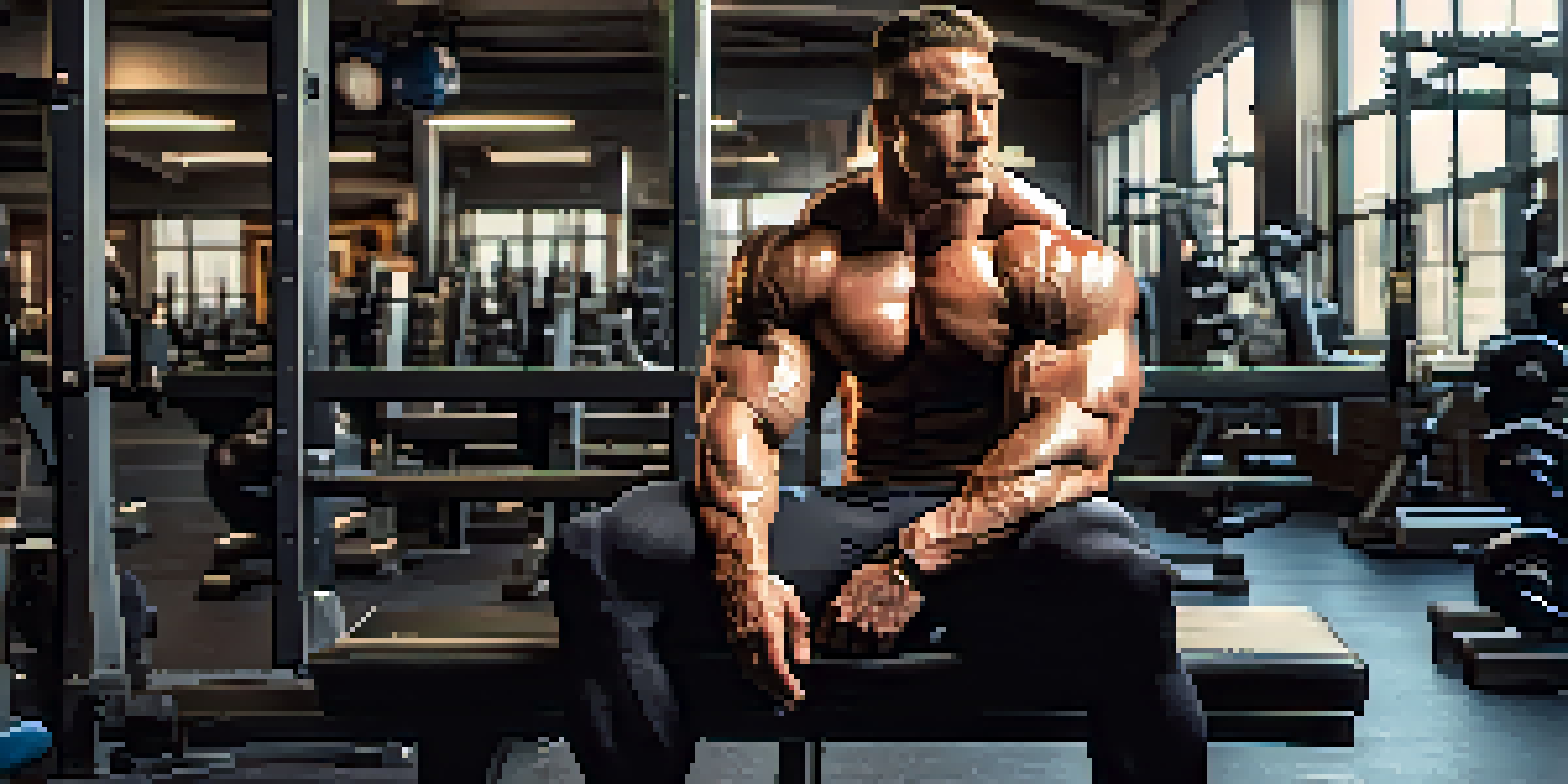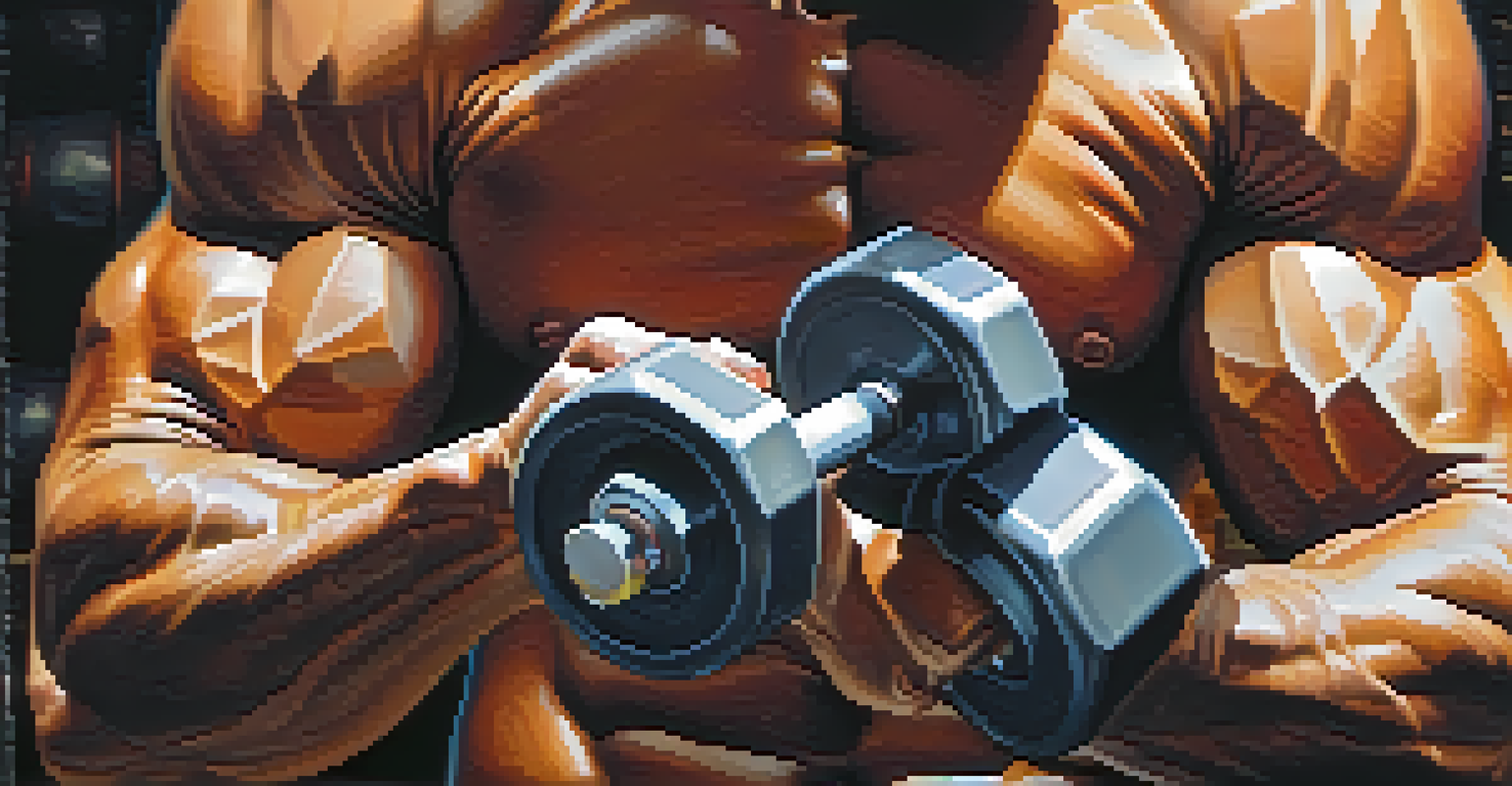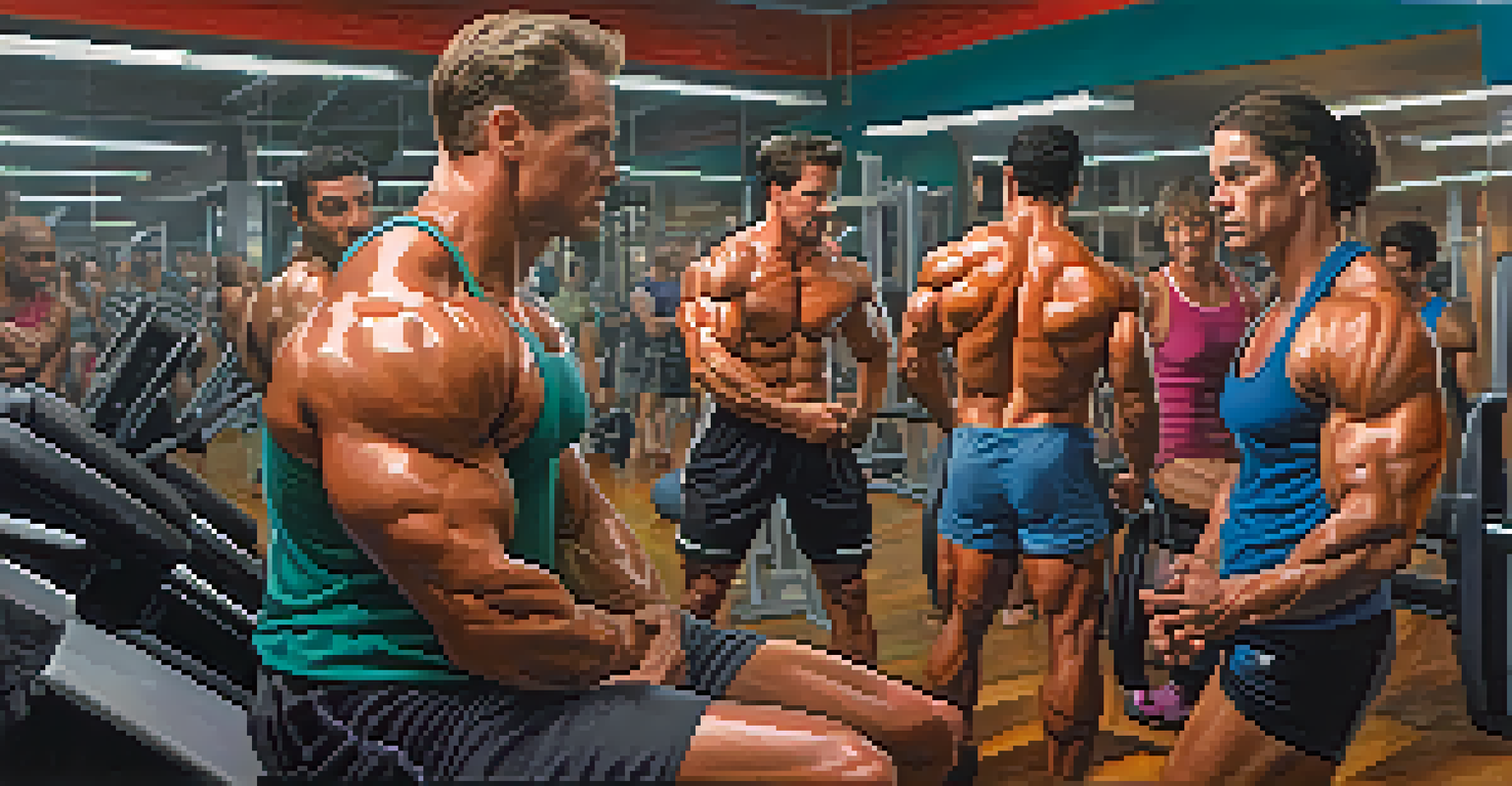Psychological Effects of Injury on Bodybuilders and Recovery

The Mental Toll of Physical Injury on Bodybuilders
Injuries can hit bodybuilders hard, not just physically, but mentally too. When someone invests so much time and effort into sculpting their physique, an injury can feel like a personal setback. This emotional blow can lead to feelings of frustration and helplessness, making it difficult to maintain motivation.
Injuries may be an inevitable part of any athlete's journey, but how we respond to them defines our true character.
Moreover, the identity of a bodybuilder is often tied closely to their physical prowess and appearance. When injuries occur, they may struggle with self-esteem and body image issues, leading to a spiral of negative thoughts. It's as if you've trained for a marathon and suddenly find yourself sidelined with an injury; the disappointment can be overwhelming.
Understanding these mental challenges is the first step in addressing them. Recognizing that these feelings are valid and common among athletes can help bodybuilders process their emotions more effectively during recovery.
Isolation and Social Withdrawal During Recovery
Injured bodybuilders may find themselves withdrawing from social circles, often feeling isolated in their struggle. The gym community, which usually provides support, can start to feel daunting when one can’t participate. This sense of exclusion can exacerbate feelings of loneliness and depression.

For many bodybuilders, the gym is a place of camaraderie and connection. When they can't engage in the activities they love, it can feel like a loss of identity. Imagine being part of a vibrant community only to watch from the sidelines; the emotional distance can be quite painful.
Mental Impact of Injuries
Injuries can significantly affect bodybuilders' mental health, leading to feelings of frustration, isolation, and self-esteem issues.
To combat this isolation, it's crucial for bodybuilders to seek support, whether through friends, family, or online communities. Engaging with others who understand the journey can provide a sense of belonging, even during tough times.
Fear of Losing Progress and Gaining Weight
One of the most daunting fears for injured bodybuilders is the prospect of losing their hard-earned progress. The worry about gaining weight or losing muscle mass can lead to anxiety, making recovery even tougher. This fear can sometimes manifest in unhealthy coping mechanisms, such as extreme dieting or overexercising once they're cleared to return.
The greatest glory in living lies not in never falling, but in rising every time we fall.
It's important to remember that the body needs time to heal, and that any temporary setbacks don't erase years of hard work. Think of it like a garden; if you neglect it for a season, it doesn't mean the flowers will never bloom again. The key is to focus on recovery rather than obsessing over aesthetic goals.
Developing a realistic recovery plan that incorporates mental and physical health can help alleviate these fears. Bodybuilders should be encouraged to celebrate small victories during recovery to maintain a positive mindset.
Coping Strategies for Mental Resilience
Building mental resilience is essential for bodybuilders facing injury. Techniques such as mindfulness and meditation can help manage anxiety and foster a more positive outlook. Just like training muscles, the mind also benefits from consistent practice and nurturing.
Cognitive Behavioral Therapy (CBT) can also be an effective tool for those struggling with negative thoughts during recovery. It encourages individuals to challenge and reframe their thinking patterns, leading to healthier emotional responses. This is akin to adjusting your workout routine when you hit a plateau; small changes can lead to significant improvements.
Importance of Support Networks
Building connections with friends, family, and communities is crucial for injured bodybuilders to combat feelings of loneliness during recovery.
Incorporating supportive practices into daily life creates a more balanced approach to recovery, enabling bodybuilders to emerge stronger, both physically and mentally.
The Role of Goal Setting in Recovery
Setting realistic and achievable goals is a powerful way to maintain motivation during recovery. Instead of focusing solely on physical milestones, incorporating mental and emotional goals can provide a holistic approach. For instance, a bodybuilder might aim to regain mobility before returning to weightlifting, which can create a sense of accomplishment along the way.
These smaller, incremental goals can be likened to stepping stones across a river; each step helps build confidence and keeps frustration at bay. Celebrating these achievements, no matter how minor they may seem, fosters a positive mindset and reinforces progress.
By focusing on the journey rather than just the destination, bodybuilders can cultivate patience and resilience during their recovery process.
The Importance of Professional Support
Seeking professional help can be a game-changer for bodybuilders dealing with the psychological effects of injury. Physical therapists, sports psychologists, and personal trainers can provide tailored support that addresses both physical and mental health needs. This multidisciplinary approach ensures that bodybuilders receive comprehensive care during their recovery.
Just as one wouldn’t attempt to treat a serious injury without medical advice, addressing mental health should be taken seriously too. Having a knowledgeable guide can help navigate the emotional complexities of injury recovery, making the process feel less overwhelming.
Setting Recovery Goals
Establishing realistic and achievable goals helps bodybuilders maintain motivation and fosters a positive mindset throughout the recovery process.
Incorporating professional support into recovery plans not only expedites physical healing but also fosters mental resilience, ultimately leading to a more successful return to training.
Success Stories: Overcoming Injury and Building Resilience
Many successful bodybuilders have faced injuries and used them as pivotal moments for growth. Stories of athletes who have overcome significant setbacks often inspire others in similar situations. For instance, a bodybuilder who suffered a severe injury might share how they learned to appreciate the journey and focus on personal growth rather than just physical appearance.
These narratives serve as powerful reminders that setbacks can lead to comebacks. Much like a phoenix rising from the ashes, these individuals emerge stronger, equipped with new insights and a deeper understanding of their bodies and minds.

By sharing these success stories, bodybuilders can create a supportive environment where struggles are acknowledged, and resilience is celebrated.